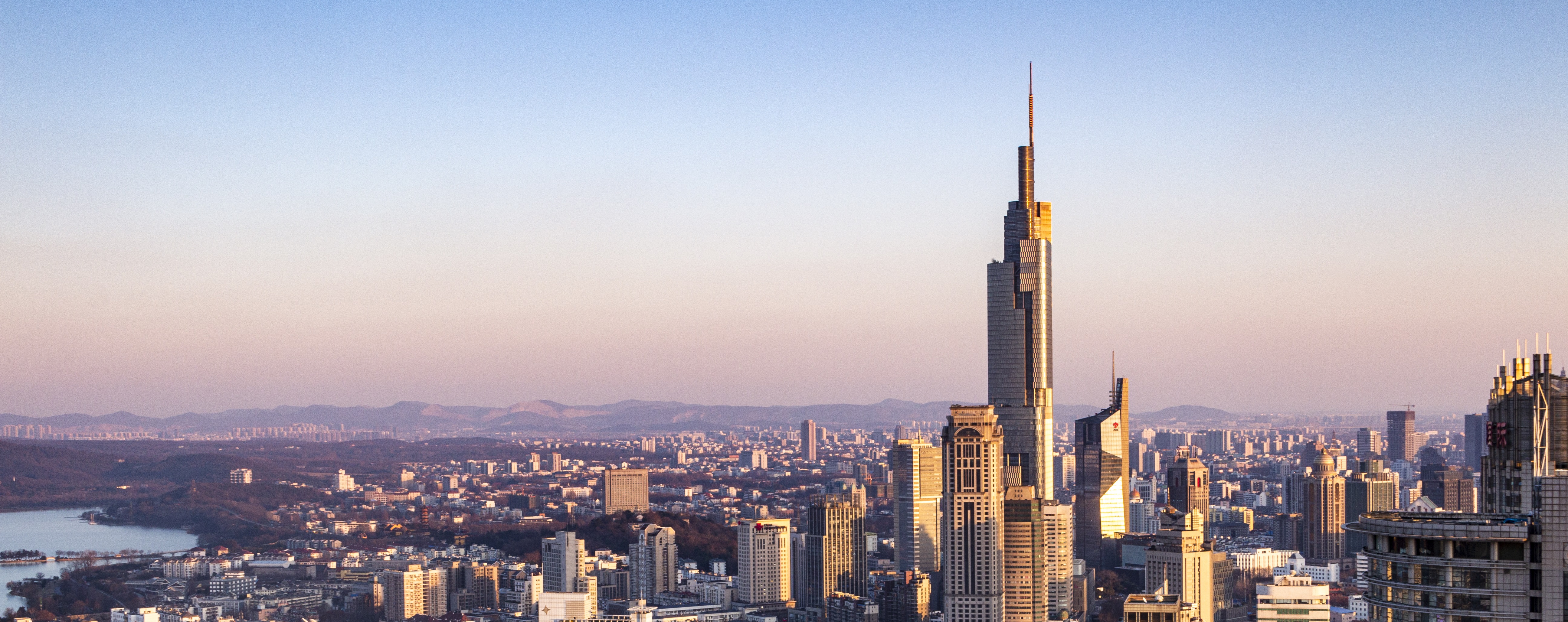
Remote Sensing Science Workshop
31 March 2023, Nanjing, Jiangsu, China
remote sensors, Data Acquisition and Processing, remote sensing application
NOTICE
Since the outbreak of COVID-19, various regions have implemented active measures to combat the virus. In order to better provide a safe academic communication environment for experts and scholars from various regions, the conference organizer has decided to extend the 8th International Symposium on Sensor Science – China (I3S-CN), which was originally scheduled from 14-16 September 2022 to 29-31 March 2023, with the venue unchanged.
We apologize for the inconvenience caused by the extension of the conference. Thank you for your understanding and support.
Kind regards,
Conference Secretariat
3 February 2023
Welcome from the Chairs
Welcome from the Chairs of the Remote Sensing Science Workshop 2022
![]() 16 September 2022 31 March 2023
16 September 2022 31 March 2023
![]() Baijin Hanjue Hotel, Nanjing, China
Baijin Hanjue Hotel, Nanjing, China
We are pleased to announce the Remote Sensing Science Workshop 2022. The workshop will focus on the following two sessions:
- Remote Sensors, Data Acquisition and Processing (Session 1);
- Remote Sensing Application (Session 2).
The workshop invites submissions of abstracts that will be reviewed by the conference committee. The authors of the accepted contributions will be invited to submit a conference paper along with a slide or poster presentation of their works. All participants will have the opportunity to examine, explore, and critically engage with research during the symposium.
During the workshop, a number of renowned speakers will share their current state-of-the-art research, which will also include a Q&A session to allow audience participation.
After the workshop, all accepted conference papers will be published in the proceedings of this workshop within a dedicated issue of the MDPI journal Engineering Proceedings. In addition, all participants will be encouraged to submit an extended full manuscript to Remote Sensing with a CHF 500 discount on the Article Processing Charge (APC).
Expanded and high-quality conference papers can be considered as articles if they fulfill the following requirements: (1) the paper should be expanded to the size of a research article; (2) the conference paper should be cited and noted on the first page of the paper; (3) if the authors do not hold the copyright of the published conference paper, authors should seek the appropriate permission from the copyright holder; (4) authors are asked to disclose that it is conference paper in their cover letter and include a statement on what has been changed compared to the original conference paper. Remote Sensing does not publish pilot studies or studies with inadequate statistical power.
We hope that you will join this workshop to exchange ideas and engage in fruitful collaboration.
Kind regards,
Prof. Dr. Weimin Ju and Prof. Dr. Yongguang Zhang
The Chairs of the Remote Sensing Science Workshop 2023
Workshop Chairs

International Institute for Earth System Science, Nanjing University, Nanjing, China
Website
International Institute for Earth System Science, Nanjing University, Nanjing, China

International Institute for Earth System Science, Nanjing University, Nanjing, China
Website
International Institute for Earth System Science, Nanjing University, Nanjing, China
Advisory Committee

Center for Urban and Environmental Change, Department of Earth and Environmental Systems, Indiana State University, Terre Haute, USA
Center for Urban and Environmental Change, Department of Earth and Environmental Systems, Indiana State University, Terre Haute, IN 47809, USA http://qihaoweng.net/
remote sensing; GIS; land use and land cover change; urban environment and ecosystem

Laboratory of Forest Management and Remote Sensing, School of Forestry and Natural Environment, Aristotle University of Thessaloniki, Thessaloniki, Greece
Laboratory of Forest Management and Remote Sensing, School of Forestry and Natural Environment, Aristotle University of Thessaloniki, Thessaloniki, Greece http://fmrs.web.auth.gr/profile/ioannis-gitas-head-of-the-unit-professor/
land use/land cover mapping; land cover change detection; pre-fire planning and post-fire assessment; soil erosion risk assessment/desertification; other environmental applications of remote sensing and GIS

School of Atmosphere Science, Sun Yat-sen University, Guangzhou, China
School of Atmosphere Science, Sun Yat-sen University, Guangzhou, China http://atmos.sysu.edu.cn/teacher/343
land surface processes model; land-atmosphere interaction; land datasets for global land modeling

Institute of Forest Resource Information Techniques, Chinese Academy of Forestry, Beijing, China
Institute of Forest Resource Information Techniques, Chinese Academy of Forestry, Beijing 100091, China
applications of remote sensing to forestry and grassland

Laboratory for Earth Observation, Image Processing Laboratory - Scientific Park, Department of Earth Physics and Thermodynamics, Faculty of Physics, University of Valencia, Valencia, Spain
Laboratory for Earth Observation, Image Processing Laboratory - Scientific Park, Department of Earth Physics and Thermodynamics, Faculty of Physics, University of Valencia, C/ Dr. Moliner, 50, 46100 Burjassot, Valencia, Spain https://ipl.uv.es/?q=users/josemoreno
optical remote sensing; imaging spectroscopy; vegetation fluorescence; vegetation biophysical parameters; land surface applications; optical reflectance/fluorescence models; retrieval methods; design of future earth observation missions; dynamical vegetat

Faculty of Science, University of Technology Sydney, Ultimo, Australia
Faculty of Science, University of Technology Sydney, Ultimo, NSW 2007, Australia https://www.researchgate.net/profile/Alfredo-Huete
ecological impacts of climate change; drought and ecosystem resilience; tropical forest phenology; ecohydrology; disturbance
Academic Committee

Dr. Hongtao Duan
Nanjing Institute of Geography and Limnology Chinese Academy of Sciences, Nanjing, China
htduan@niglas.ac.cn
cyanobacterial blooms; water color remote sensing; carbon cycling; climate change and anthropogenic influence on water quality in lakes

Dr. Lin Cao
Department of Forest Resources Management, Faculty of Forestry, Nanjing Forestry University, Nanjing, China
lincao@njfu.edu.cn
LiDAR applications in forest inventory and management; UAV and their point cloud processing; forest biomass estimation; forest change detection; tree species classification; subtropical forest ecology; ecological modelling; wildlife habitat

Dr. Qi Wang
Center for OPTical IMagery Analysis and Learning (OPTIMAL), Northwestern Polytechnical University, Xi'an, China
crabwq@gmail.com
remote sensing; image analysis; computer vision; pattern recognition; machine learning

Prof. Dr. Xuecao Li
Collage of Land Science and Technology, China Agriculture University, Beijing, China
xuecaoli@cau.edu.cn
Urban remote sensing; vegetation phenology; urban heat island; urban growth modeling; nighttime light

Prof. Dr. Yong Pang
Chinese Academy of Forestry China
pangy@ifrit.ac.cn
Lidar backscatter modeling from forests; integration of multi-source/sensor data for forest parameters retrieval

Prof. Dr. Dengsheng Lu
School of Geographic Sciences, Fujian Normal University, Fuzhou, Fujian, China
ludengsh@msu.edu
remote sensing; urban and environment interaction; forest carbon modeling

Dr. Yiyun Chen
School of Resource and Environmental Science, Wuhan University, Wuhan, China
chenyy@whu.edu.cn
proximal soil sensing; heavy metal contamination; sustainable development

Prof. Dr. Kai Qin
School of Environment and Spatial Informatics, China University of Mining and Technology, Xuzhou, China
qinkai@cumt.edu.cn
remote sensing of aerosols and trace gases; understanding of air pollution using ground and satellite observations; lithosphere–atmosphere–ionosphere coupling

Prof. Dr. Lunche Wang
Department of Geography, China University of Geosciences, Wuhan, China
wang@cug.edu.cn
solar radiation; land surface process; atmospheric radiative transfer; aerosol and atmospheric environment; remote sensing; climate change; urban meteorology, geography and ecology; terrestrial ecosystem and crop production; ecosystem services

Prof. Dr. Yongqiang Zhang
Key Laboratory of Water Cycle and Related Land Surface Processes, Institute of Geographic Sciences and Natural Resources Research, Chinese Academy of Sciences, Beijing, China
yongqiang.zhang2014@gmail.com
remote sensing; hydrology; climate change; evapotranspiration; runoff; predictions; catchment

Dr. Yanjun Su
State Key Laboratory of Vegetation and Environmental Change, Institute of Botany, Chinese Academy of Science, Beijing, China
ysu@ibcas.ac.cn
remote sensing; LiDAR; GIS; climate change; terrestrial ecosystems; forest structures

Prof. Dr. Yaoming Ma
Institute of Tibetan Plateau Research, Chinese Academy of Sciences (CAS), Beijing, China
ymma@itpcas.ac.cn
water cycle; evapotranspiration and evaporation; atmospheric boundary layer; satellite remote sensing application

Prof. Dr. Timo Balz
The State Key Laboratory of Information Engineering in Surveying, Mapping and Remote Sensing (LIESMARS), Wuhan University, Wuhan, China
balz@whu.edu.cn
SAR remote sensing; SAR interferometry; surface motion estimation; SAR in archaeology

Prof. Dr. Yu Liu
Institute of Remote Sensing and Geographical Information Systems, Peking University, Beijing, China
liuyu@urban.pku.edu.cn
GIScience; spatiotemporal big data; human geography

Dr. Xiongwu Xiao
State Key Laboratory of Information Engineering in Surveying, Mapping and Remote Sensing (LIESMARS), Wuhan University, Wuhan, China
xwxiao@whu.edu.cn
remote sensing of UAVs and satellites; photogrammetry and computer vision; image and graphics processing; simultaneous localization and mapping (SLAM); deep learning and artificial intelligence

Dr. Huan Wu
School of Atmospheric Sciences, Sun Yat-sen University, Zhuhai, China
wuhuan3@mail.sysu.edu.cn
remote sensing; modeling; hydrology; meteorology

Prof. Dr. Ji Zhou
School of Resources and Environment, Center for Information Geoscience, University of Electronic Science and Technology of China, Chengdu, China
jzhou233@uestc.edu.cn
thermal infrared remote sensing; uav remote sensing; urban remote sensing; land surface temperature; hydrological process; climate change

Prof. Dr. Qiuhong Tang
Key Laboratory of Water Cycle and Related Land Surface Processes, Institute of Geographic Sciences and Natural Resources Research, Chinese Academy of Sciences, Beijing, China
tangqh@igsnrr.ac.cn
water cycle; remote sensing hydrology; land surface modeling; global change; water resources

Dr. Guoqing Zhou
1. Director, Guangxi Key Laboratory for Spatial Information and Geomatics, Guilin Iniversity of Technology, Guilin, China 2. Director, The Center for Remote Sensing, Tianjin University, Tianjin, China
gzhou@glut.edu.cn
lidar imaging; lidar data processing; terrestrial remote sensing; image geometric rectification; image processing

Prof. Dr. Licheng Jiao
Key Laboratory of Intelligent Perception and Image Understanding of Ministry of Education, International Research Center for Intelligent Perception and Computation, Joint International Research Laboratory of Intelligent Perception and Computation, School of Artificial Intelligence, Xidian University, Xi'an, China
lchjiao@mail.xidian.edu.cn
artificial intelligence; pattern recognition; image intelligent perception; natural computation; brainlike learning; big data

Dr. Jie Cheng
Institute of Remote Sensing Science and Engineering, Faculty of Geographical Science, Beijing Normal University, Beijing, China
jie_cheng@bnu.edu.cn
development of remote sensing inversion algorithms; producing of high-level remote sensing products; radiative transfer modeling; remote sensing of surface radiation budget

Prof. Dr. Lifu Zhang
Aerospace Information Research Institute, Chinese Academy of Sciences, Beijing, China
zhanglf@radi.ac.cn
hyperspectral remote sensing; data fusion; quality enhancement

Prof. Dr. Yubao Qiu
Key Laboratory of Digital Earth Science, Aerospace Information Research Institute, Chinese Academy of Sciences, Beijing, China
qiuyb@aircas.ac.cn
remote sensing of snow and ice; mocrowave remote sensing; global change

Prof. Dr. Fulong Chen
Institute of Remote Sensing and Digital Earth, Chinese Academy of Sciences, International Centre on Space Technologies for Natural and Cultural Heritage under the auspices of UNESCO, Beijing, China
chenfl@radi.ac.cn
remote sensing for archaeology; risk mapping and sustainable assessment of monuments and archaeo-landscapes; geoarchaeology; interferometric synthetic aperture radar (InSAR); multi-temporal InSAR (MT-InSAR); change detection and time series analysis

Dr. Tao Lei
School of Electronic Inormation and Artificial Intelligence, Shaanxi University of Science and Technology, Xi’an, China
leitaoly@163.com
machine learning; remote sensing image analysis; visual understand

Prof. Dr. Huan Xie
College of Surveying and Geo-Informatics, Tongji University, Shanghai, China
huanxie@tongji.edu.cn
lidar; hyperspectral remote sensing

Dr. Qiangqiang Yuan
School of Geodesy and Geomatics, Wuhan University, Wuhan 430079, China
yqiang86@gmail.com
image reconstruction; image denoising; image super-resolution; remote sensing image processing; data fusion and application

Dr. Zhengyong Ren
School of Geoscience and Info-Physics, Central South University, Changsha, China
renzhengyong@csu.edu.cn
mineral exploration; electromagnetic induction exploration methods; gravity and magnetic exploration methods; resistivity imaging; deep Earth imaging

Dr. Guangsheng Chen
1. College of Environment and Resources, Zhejiang A&F University, Hangzhou, China 2. Ecosystem Dynamics and Global Ecology Laboratory, School of Forestry and Wildlife Sciences, Auburn University, Auburn, USA
auburncgs@126.com
experimental observations; ecosystem models; remote sensing methods to assess and predict global changes

Dr. Xuanlong Ma
College of Earth and Environmental Sciences, Lanzhou University, Lanzhou, China
xlma@lzu.edu.cn
remote sensing of vegetation; phenology; biodiversity; global change

Prof. Dr. Kun-Shan Chen
College of Geomatics and Geoinformation, Guilin University of Technology, Guilin, China
chenks@glut.edu.cn
microwave scattering and propagation; imaging radar; intelligent signal and image processing

Dr. Xian Sun
Aerospace Information Research Institute, Chinese Academy of Sciences, Beijing, China
sunxian@aircas.ac.cn
remote sensing image interpretation; artificial intelligence; machine learning; computer vision

Prof. Dr. Feng Ling
Institute of Geodesy and Geophysics, Chinese Academy of Sciences, Wuhan, China
lingf@whigg.ac.cn
remote sensing; land cover; super-resolution mapping; sub-pixel information; water resource; forest disturbance; multi-temporal analysis; data fusion

Prof. Dr. José A. Sobrino
Imaging Processing Laboratory, Universidad de Valencia, Spain
sobrino@uv.es
atmospheric correction in visible and infrared domains; retrieval of emissivity; surface temperature; evapotranspiration; thermal inertia; atmospheric water vapor from satellite image; the development of remote sensing methods for land cover dynamic monitoring
Keynote Speakers

Key Laboratory of Watershed Geographic Sciences, Nanjing Institute of Geography and Limnology, Chinese Academy of Sciences

Key Laboratory of Digital Earth Science, Aerospace Information Research Institute, Chinese Academy of Sciences

School of Geographical Sciences, Southwest University
Workshop Secretariat
Mr. Yunlong Chen
Mr. Weiwei Zhao
Ms. Judith Wu
Ms. Rainy Han
MDPI Branch Office, Beijing, China
E-Mail: i3s-cn@mdpi.com
For information regarding submission inquiry and sponsoring opportunities, please feel free to contact us.
Registration
The registration fee includes attendance of all conference sessions, morning/afternoon coffee breaks and lunches, participation in the conference dinner, conference bag and program book.
Please note that, in order to finalize the scientific program in due time, at least one registration by anyone of the authors, denoted as Covering Author, is required to cover the presentation and publication of any accepted abstract. Covering Author registration deadline is 10 June 2022 31 August 2022.
For onsite registration, please contact the Conference Secretariat.
|
Early |
Regular |
Supported documents |
|
|
Students (14-15 November) |
1100 CNY |
1400 CNY |
Scanned copy or photograph of your current student ID card |
|
Students (16 November) |
300 CNY |
400 CNY |
|
|
Students (14-16 November) |
1300 CNY |
1600 CNY |
|
|
Academic (14-15 November) |
1800 CNY |
2200 CNY |
|
|
Academic (16 November) |
500 CNY |
700 CNY |
|
|
Academic (14-16 November) |
2000 CNY |
2400 CNY |
|
|
Early fee valid until 31/08/2022 |
|||
Attachment: Payment Process
Participation to the conference is considered final only once the registration fees have been paid. The number of participants is limited, once the number of paid registrations reaches the maximum number of participants, unpaid registrations will be cancelled.
| Cancellation of paid registration is possible under the terms listed below: | |
| Before 5 November 2022 |
Full refund but 300 CNY are retained for administration |
| After 5 November 2022 |
No refund |
Disclaimer
In the unlikely event that MDPI shall deem it necessary to cancel the conference, all pre-paid registration fees will be reimbursed. MDPI shall not be liable for reimbursing the cost of travel or accommodation arrangements made by individual delegates.
Photographs and/or video will be taken during the conference
By taking part in this event you grant the event organisers full rights to use the images resulting from the photography/video filming, and any reproductions or adaptations of the images for fundraising, publicity or other purposes to help achieve the conference’s aims. This might include (but is not limited to), the right to use them in their printed and online publicity, social media, press releases and funding applications.
Cancellation policy
Participation to the conference is considered final only once the registration fees have been paid. The number of participants is limited, once the number of paid registrations reaches the maximum number of participants, unpaid registrations will be cancelled.
| Cancellation of paid registration is possible under the terms listed below: | |
| Before 20 June 2022 |
Full refund but 300 CNY are retained for administration |
| After 20 June 2022 |
No refund |
Disclaimer
In the unlikely event that MDPI shall deem it necessary to cancel the conference, all pre-paid registration fees will be reimbursed. MDPI shall not be liable for reimbursing the cost of travel or accommodation arrangements made by individual delegates.
Photographs and/or video will be taken during the conference
By taking part in this event you grant the event organisers full rights to use the images resulting from the photography/video filming, and any reproductions or adaptations of the images for fundraising, publicity or other purposes to help achieve the conference’s aims. This might include (but is not limited to), the right to use them in their printed and online publicity, social media, press releases and funding applications.
中文官网
Remote Sensing遥感科学研讨会中文官网入口
Instructions for Authors
- Create an account on Sciforum if you do not have one, then click on Submit Abstract on the top of Conference website OR click on New Submission on the upper-right corner of the window.
- Indicate which thematic area is best suited for your research.
- Submit a 200-word abstract in English - the word limits are minimum 150 words and maximum 250 words.
- The deadline to submit your abstract is 5 August 2022 10 October 2022 You will be notified before 12 August 2022 12 October 2022 regarding the acceptance for poster presentation.
- Upon submission, you can select if you also wish to be considered for oral presentation. Following assessment by the Chairs, you will be notified before 12 August 2022 12 October 2022 in a separate email whether your contribution has been accepted for oral presentation.
- Please note that, in order to finalize the scientific program in due time, at least one registration by any of the authors, denoted as Covering Author, is required to cover the presentation and publication of any accepted abstract.
Maximum poster size limited to 80 cm x 140 cm, vertical orientation preferred. Please print your poster prior to the conference.
A plan of the poster session will be circulated later on.
- All accepted abstracts will be available online in Open Access form on Sciforum.net during and after the conference.
- All accepted extended abstracts will be published in the journal Engineering Proceedings.
- Participants of this conference are cordially invited to contribute with a full manuscript to Remote Sensing. Papers presented at the conference will be granted 500 CHF discount !
- Remote Sensing is indexed by Scopus, SCIE (Web of Science), Ei Compendex, AGRICOLA, GeoRef, Astrophysics Data System, Inspec, dblp, and many other databases, and has an Impact Factor of 5.349 (Journal Citations Reports 2021).
Venue, Travel and Accommodation
Conference Venue
The conference will be held at Baijin Hanjue Hotel, Nanjing, China.

Nanjing, is the capital of Jiangsu province of the People's Republic of China and the second largest city in the East China region. Situated in the Yangtze River Delta region, Nanjing has a prominent place in Chinese history and culture, having served as the capital of various Chinese dynasties, kingdoms and republican governments dating from the 3rd century to 1949, and has thus long been a major center of culture, education, research, politics, economy, transport networks and tourism, being the home to one of the world's largest inland ports.
Nanjing has many important heritage sites, including the Presidential Palace and Sun Yat-sen Mausoleum. Nanjing is famous for human historical landscapes, mountains and waters such as Fuzimiao, Ming Palace, Chaotian Palace, Porcelain Tower, Drum Tower, Stone City, City Wall, Qinhuai River, Xuanwu Lake and Purple Mountain. Key cultural facilities include Nanjing Library, Nanjing Museum and Jiangsu Art Museum etc.
Travel Information - Getting to Nanjing
 If you arrive by plane
If you arrive by plane
Nanjing has an International Airport called Nanjing Lukou International Airport. It is the main airport serving Nanjing and a major airport serving the Yangtze River Delta area. It is located in the suburban Jiangning District, over 35 km (22 mi) south of the city center, and is connected to Nanjing and neighboring towns by expressways. Phase I of the Ninggao Intercity Line and Line S1 of the Nanjing Metro link the airport with Nanjing South railway station. For information about Nanjing Lukou International Airport and flights, please visit the web site here.
From Nanjing Lukou International Airport to Baijin Hanjue Hotel:
By bus
- You can take the "Airport Bus Line 1" (Nanjing Railway Station, 6th Stop), from there walk to "Longpan Road · Nanjing Station East" bus station and then take Bus Line 71.
By taxi
- Taxis: just outside the arrivals area (~ 140 CNY).
 If you arrive by train
If you arrive by train
The main railway station of Nanjing is called Nanjingnan (Nanjing South) railway station. It is a high-speed railway station in Nanjing. The new Nanjing South railway station is located a few kilometers south of downtown Nanjing in Yuhuatai District, and has a connection with the Nanjing Metro, served by Lines 1, 3, S1 and S3.
From Nanjingnan (Nanjing South) railway station to Baijin Hanjue Hotel:
By metro
- You can take Metro Line 3 (Nanjing Forestry University · Xinzhuang, 11th Stop), from there walk to "Xinzhuang Square East" bus station and then take bus 71.
- You can take Metro Line 3, get off at "Jiming Temple" (10th Stop) and transfer to Metro Line 4. Get off from "Jubaoshan" and take a taxi.
By bus
- You can take the Bus Line 190 (Nanjing Station · South Square East, 26th Stop), from there take to Bus Line 71.
By taxi
- Taxis: just outside the arrivals area (~ 50 CNY).




















